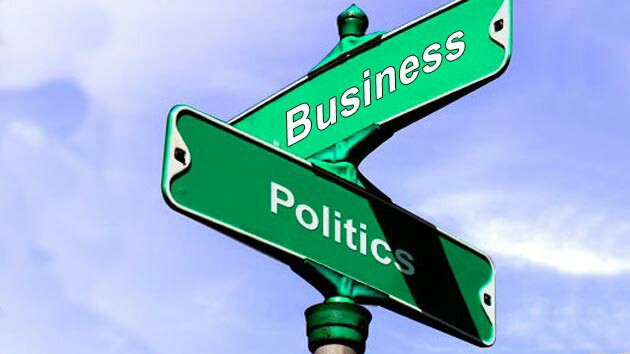Politics is an integral part of the economy. Why should we be fully aware of all political developments, provided that we do not become politicians so that they do not affect the conduct of our business?
This is a question that many entrepreneurs and business owners may ask themselves, especially in times of political uncertainty and turmoil. Some may think that politics is irrelevant to their business, or that it is too complex and unpredictable to follow. Others may prefer to focus on their core competencies and leave politics to the experts. However, in this post, I will argue that politics is not only relevant but essential for any business that operates in a market economy. I will also provide some tips on how to stay informed and engaged with political issues, without compromising your business ethics or values.
First of all, what is politics? Politics is the process of making collective decisions that affect the lives of people in a society. Politics involves the allocation of resources, the distribution of power, the regulation of behavior, and the resolution of conflicts. Politics shapes the laws, policies, institutions, and norms that govern the economic activity of a country. Politics also influences the culture, values, and beliefs of a society, which in turn affects the preferences and behavior of consumers and producers.
Therefore, politics has a direct impact on the economy, and vice versa. The economy is not a separate sphere that operates independently from politics. Rather, the economy is embedded in a political system that determines its rules and outcomes. For example, politics affects the economy by:
- Setting the fiscal and monetary policies that influence the level of inflation, interest rates, taxes, spending, and debt.
- Establishing the trade policies that determine the level of openness, protectionism, tariffs, quotas, and sanctions.
- Creating the regulatory policies that define the level of competition, innovation, consumer protection, environmental protection, labor rights, and corporate governance.
- Forming the social policies that affect the level of education, health care, social security, welfare, and inequality.
- Shaping the foreign policies that influence the level of diplomacy, cooperation, conflict, and security.
These are just some examples of how politics affects the economy at different levels: macroeconomic, sectoral, regional, and global. The impact of politics on the economy can be positive or negative, depending on the quality and effectiveness of political institutions and actors. Good governance can foster economic growth, stability, efficiency, equity, and sustainability. Bad governance can hinder economic development, and create instability, inefficiency, injustice, and unsustainability.
As a business owner or entrepreneur, you cannot ignore or avoid politics. Politics affects your business in many ways: it determines your costs and revenues; it creates opportunities and threats; it shapes your competitive advantage and market position; it influences your customers’ needs and preferences; it affects your employees’ motivation and productivity; it impacts your reputation and social responsibility. In short, politics affects your bottom line.
Therefore, you should be fully aware of all political developments that are relevant to your business. You should monitor the political environment at different levels: local and international, as the world has become smaller than you imagine.
By Mostafa EL Masry

